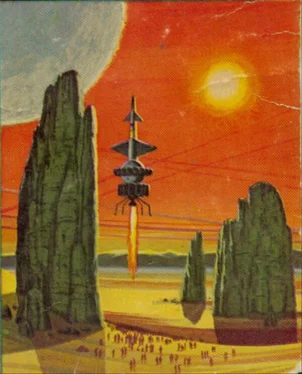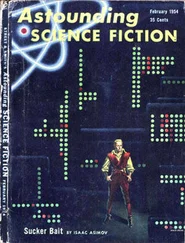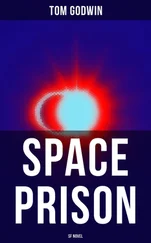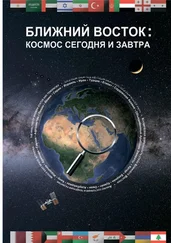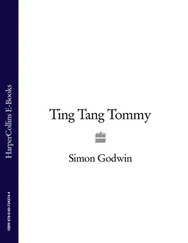Tom Godwin - Space Prison
Здесь есть возможность читать онлайн «Tom Godwin - Space Prison» весь текст электронной книги совершенно бесплатно (целиком полную версию без сокращений). В некоторых случаях можно слушать аудио, скачать через торрент в формате fb2 и присутствует краткое содержание. Жанр: Фантастика и фэнтези, на английском языке. Описание произведения, (предисловие) а так же отзывы посетителей доступны на портале библиотеки ЛибКат.
- Название:Space Prison
- Автор:
- Жанр:
- Год:неизвестен
- ISBN:нет данных
- Рейтинг книги:5 / 5. Голосов: 1
-
Избранное:Добавить в избранное
- Отзывы:
-
Ваша оценка:
- 100
- 1
- 2
- 3
- 4
- 5
Space Prison: краткое содержание, описание и аннотация
Предлагаем к чтению аннотацию, описание, краткое содержание или предисловие (зависит от того, что написал сам автор книги «Space Prison»). Если вы не нашли необходимую информацию о книге — напишите в комментариях, мы постараемся отыскать её.
The sound came swiftly nearer, rising in pitch and swelling in volume. Then it broke through the clouds, tall and black and beautifully deadly—the Gern battle cruiser, come to seek them out and destroy them.
Humbolt dropped inside the stockade, exulting. For two hundred years his people had been waiting for the chance to fight the mighty Gern Empire…
… with bows and arrows against blasters and bombs!
Space Prison — читать онлайн бесплатно полную книгу (весь текст) целиком
Ниже представлен текст книги, разбитый по страницам. Система сохранения места последней прочитанной страницы, позволяет с удобством читать онлайн бесплатно книгу «Space Prison», без необходимости каждый раз заново искать на чём Вы остановились. Поставьте закладку, и сможете в любой момент перейти на страницу, на которой закончили чтение.
Интервал:
Закладка:
There was the laughter of children at play, a sound that had not been heard for many months, and someone singing the old, old songs. For a few fleeting hours that day, for the first and last time on Ragnarok, there was the magic of an Earth Christmas.
That night a child was born to Julia, on a pallet of dried grass and prowler skins. She asked for her baby before she died and they let her have it.
"I wasn’t afraid, was I?" she asked. "But I wish it wasn’t so dark—I wish I could see my baby before I go."
They took the baby from her arms when she was gone and removed from it the blanket that had kept her from learning that her child was still-born.
There were two hundred and fifty of them when the first violent storms of spring came. By then eighteen children had been born. Sixteen were still-born, eight of them deformed by the gravity, but two were like any normal babies on Earth. There was only one difference: the 1.5 gravity did not seem to affect them as much as it had the Earth-born babies.
Lake, himself, married that spring; a tall, gray-eyed girl who had fought alongside the men the night of the storm when the prowlers broke into John Prentiss’s camp. And Schroeder married, the last of them all to do so.
That spring Lake sent out two classes of bowmen: those who would use the ordinary short bow and those who would use the longbows he had had made that winter. According to history the English longbowmen of medieval times had been without equal in the range and accuracy of their arrows and such extra-powerful weapons should eliminate close range stalking of woods goats and afford better protection from unicorns.
The longbows worked so well that by mid-spring he could detach Craig and three others from the hunting and send them on a prospecting expedition. Prentiss had said Ragnarok was devoid of metals but there was the hope of finding small veins the Dunbar Expedition’s instruments had not detected. They would have to find metal or else, in the end, they would go back into a flint axe stage.
Craig and his men returned when the blue star was a sun again and the heat was more than men could walk and work in. They had traveled hundreds of miles in their circuit and found no metals.
"I want to look to the south when fall comes," Craig said. "Maybe it will be different down there."
They did not face famine that summer as they had the first summer. The diet of meat and dried herbs was rough and plain but there was enough of it.
Full summer came and the land was again burned and lifeless. There was nothing to do but sit wearily in the shade and endure the heat, drawing what psychological comfort they could from the fact that summer solstice was past and the suns were creeping south again even though it would be many weeks before there was any lessening of the heat.
It was then, and by accident, that Lake discovered there was something wrong about the southward movement of the suns.
He was returning from the lookout that day and he realized it was exactly a year since he and the others had walked back to the caves while Bemmon swung on the limb behind them.
It was even the same time of day; the blue sun rising in the east behind him and the yellow sun bright in his face as it touched the western horizon before him. He remembered how the yellow sun had been like the front sight of a rifle, set in the deepest V notch of the western hills—
But now, exactly a year later, it was not in the V notch. It was on the north side of the notch.
He looked to the east, at the blue sun. It seemed to him that it, too, was farther north than it had been although with it he had no landmark to check by.
But there was no doubt about the yellow sun: it was going south, as it should at that time of year, but it was lagging behind schedule. The only explanation Lake could think of was one that would mean still another threat to their survival; perhaps greater than all the others combined.
The yellow sun dropped completely behind the north slope of the V notch and he went on to the caves. He found Craig and Anders, the only two who might know anything about Ragnarok’s axial tilts, and told them what he had seen.
"I made the calendar from the data John gave me," Anders said. "The Dunbar men made observations and computed the length of Ragnarok’s year—I don’t think they would have made any mistakes."
"If they didn’t," Lake said, "we’re in for something."
Craig was watching him, closely, thoughtfully. "Like the Ice Ages of Earth?" he asked.
Lake nodded and Anders said, "I don’t understand."
"Each year the north pole tilts toward the sun to give us summer and away from it to give us winter," Lake said. "Which, of course, you know. But there can be still another kind of axial tilt. On Earth it occurs at intervals of thousands of years. The tilting that produces the summers and winters goes on as usual but as the centuries go by the summer tilt toward the sun grows less, the winter tilt away from it greater. The north pole leans farther and farther from the sun and ice sheets come down out of the north—an Ice Age. Then the north pole’s progression away from the sun stops and the ice sheets recede as it tilts back toward the sun."
"I see," Anders said. "And if the same thing is happening here, we’re going away from an ice age but at a rate thousands of times faster than on Earth."
"I don’t know whether it’s Ragnarok’s tilt, alone, or if the orbits of the suns around each other add effects of their own over a period of years," Lake said. "The Dunbar Expedition wasn’t here long enough to check up on anything like that."
"It seemed to me it was hotter this summer than last," Craig said. "Maybe only my imagination—but it won’t be imagination in a few years if the tilt toward the sun continues."
"The time would come when we’d have to leave here," Lake said. "We’d have to go north up the plateau each spring. There’s no timber there—nothing but grass and wind and thin air. We’d have to migrate south each fall."
"Yes … migrate." Anders’s face was old and weary in the harsh reflected light of the blue sun and his hair had turned almost white in the past year. "Only the young ones could ever adapt enough to go up the plateau to its north portion. The rest of us … but we haven’t many years, anyway. Ragnarok is for the young—and if they have to migrate back and forth like animals just to stay alive they will never have time to accomplish anything or be more than stone age nomads."
"I wish we could know how long the Big Summer will be that we’re going into," Craig said. "And how long and cold the Big Winter, when Ragnarok tilts away from the sun. It wouldn’t change anything—but I’d like to know."
"We’ll start making and recording daily observations," Lake said. "Maybe the tilt will start back the other way before it’s too late."
Fall seemed to come a little later that year. Craig went to the south as soon as the weather permitted but there were no minerals there; only the metal-barren hills dwindling in size until they became a prairie that sloped down and down toward the southern lowlands where all the creatures of Ragnarok spent the winter.
"I’ll try again to the north when spring comes," Craig said. "Maybe that mountain on the plateau will have something."
Winter came, and Elaine died in giving him a son. The loss of Elaine was an unexpected blow; hurting more than he would ever have thought possible.
But he had a son … and it was his responsibility to do whatever he could to insure the survival of his son and of the sons and daughters of all the others.
His outlook altered and he began to think of the future, not in terms of years to come but in terms of generations to come. Someday one of the young ones would succeed him as leader but the young ones would have only childhood memories of Earth. He was the last leader who had known Earth and the civilization of Earth as a grown man. What he did while he was leader would incline the destiny of a new race.
Читать дальшеИнтервал:
Закладка:
Похожие книги на «Space Prison»
Представляем Вашему вниманию похожие книги на «Space Prison» списком для выбора. Мы отобрали схожую по названию и смыслу литературу в надежде предоставить читателям больше вариантов отыскать новые, интересные, ещё непрочитанные произведения.
Обсуждение, отзывы о книге «Space Prison» и просто собственные мнения читателей. Оставьте ваши комментарии, напишите, что Вы думаете о произведении, его смысле или главных героях. Укажите что конкретно понравилось, а что нет, и почему Вы так считаете.
